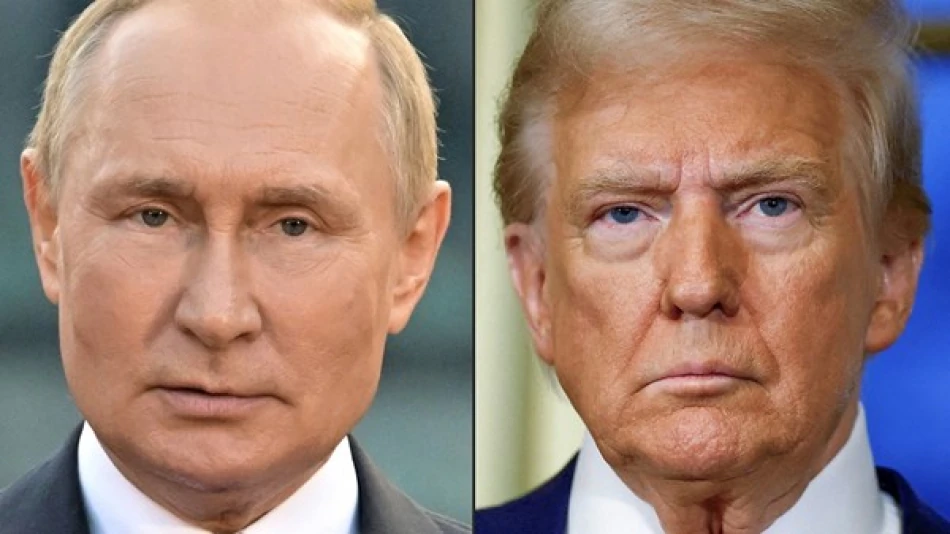
Kremlin Cautions Against Speculating on Putin-Trump Summit Outcome
Russia Tempers Expectations Ahead of High-Stakes Alaska Summit
The Kremlin is actively managing expectations for Friday's summit between Presidents Donald Trump and Vladimir Putin in Anchorage, Alaska, with Moscow's spokesperson warning that predicting outcomes would be a "grave mistake." The cautious tone suggests Russia is preparing for limited concrete results from what could be a pivotal diplomatic encounter.
No Documents, No Promises
Dmitry Peskov, the Kremlin's chief spokesperson, told Interfax news agency that no formal agreements or documents are planned for signing following the Alaska meeting. This deliberate lowering of expectations reflects a strategic approach by Moscow to avoid the diplomatic embarrassment of failed negotiations.
The decision to hold preliminary talks without binding commitments mirrors tactics used in previous US-Russia summits, where initial meetings focused on relationship-building rather than substantive policy breakthroughs.
Strategic Significance of the Alaska Venue
The choice of Anchorage as a meeting location carries symbolic weight. Alaska's proximity to Russia—just 55 miles separate the two countries at their closest point—makes it neutral ground that acknowledges both nations' Pacific interests without favoring either capital.
Historically, Alaska has served as a diplomatic bridge between Washington and Moscow. The state's unique position allows both leaders to meet on American soil while maintaining Russia's narrative of engaging as an equal power, not a supplicant traveling to Washington.
Market and Geopolitical Implications
The cautious Russian approach suggests Moscow is prioritizing stability over breakthroughs. For energy markets, this means continued uncertainty around sanctions and potential cooperation on oil and gas projects. Defense contractors and cybersecurity firms will likely see sustained demand as tensions remain unresolved.
The lack of planned agreements also signals that major issues—from Ukraine to arms control treaties—will require multiple rounds of negotiations. This extended diplomatic timeline could maintain current market volatility in sectors sensitive to US-Russia relations.
Comparing Global Diplomatic Strategies
Russia's expectation management contrasts sharply with China's approach to high-level summits, where Beijing typically announces concrete deliverables beforehand. Moscow's strategy more closely resembles European Union diplomatic practices, where initial meetings establish frameworks for future detailed negotiations.
This measured approach may reflect lessons learned from previous Trump-Putin encounters, including the 2018 Helsinki summit that generated controversy but few tangible results. By explicitly stating no documents will be signed, both sides can claim success simply by maintaining dialogue.
Most Viewed News

 Layla Al Mansoori
Layla Al Mansoori






